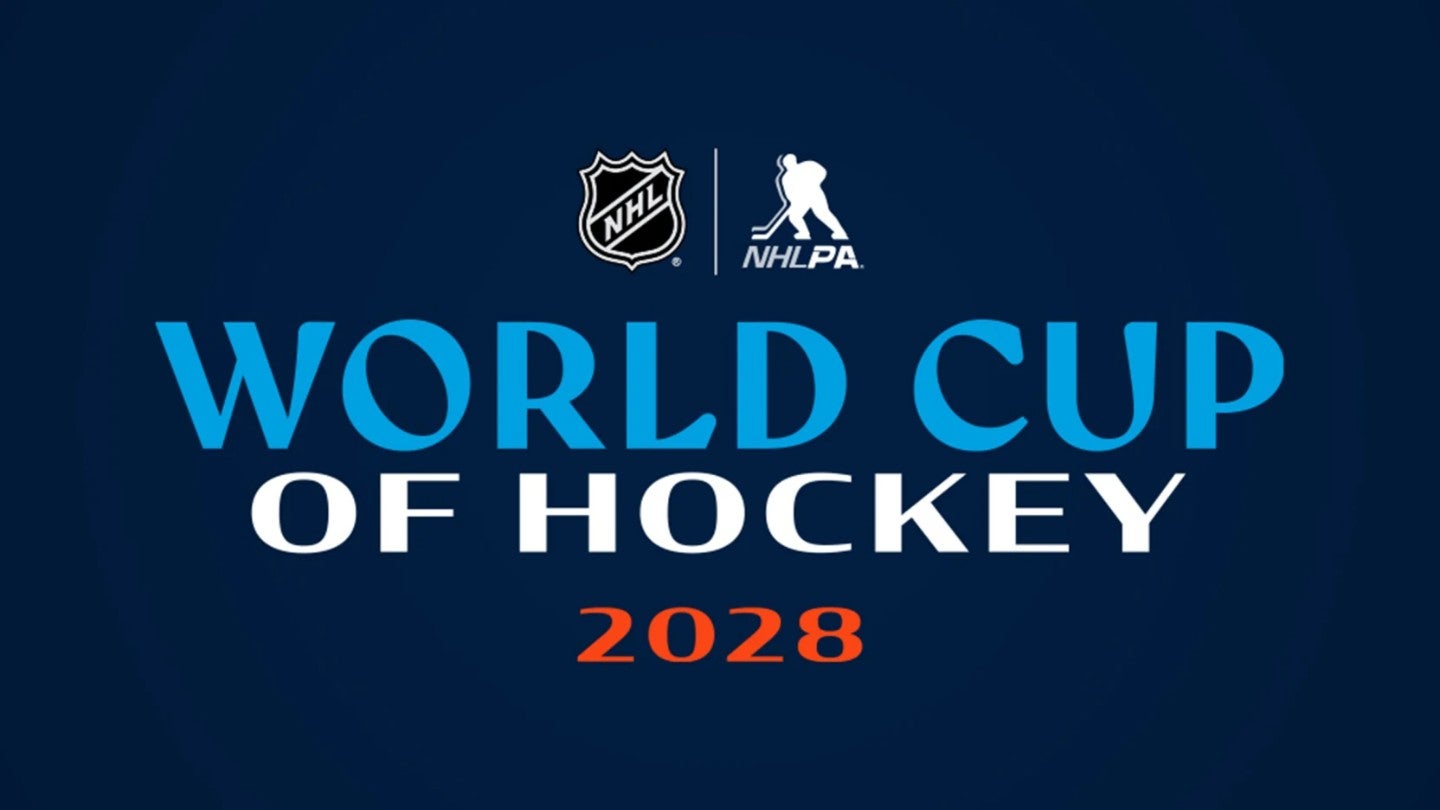
The World Cup of Hockey international tournament is set to return in February 2028, as the sport looks to establish a regular cycle of international ice hockey competitions for top players.
The tournament’s return was announced by Gary Bettman, commissioner of North America’s National Hockey League (NHL), and Marty Walsh, executive director of the players’ association (NHLPA), ahead of the 4 Nations Face-Off, an international tournament being staged as the precursor to NHL players returning to the Winter Olympics for next year’s edition.
The pair announced the league will alternate World Cups and Olympic participation every two years, ensuring top players can compete on the global stage. During those tournaments, the league will shut down to allow players to participate.
Bettman said a bidding process for host cities and venues will begin in the next few months and he anticipates at least eight teams participating in the tournament.
He added: “International best-on-best competition is very important to our players. Representing their countries on the ice is in their DNA and hockey fans love it.
“Resuming Olympic participation next season and staging a World Cup of Hockey in February 2028 will provide expanded opportunity for more players to represent more nations in best-on-best competition.

US Tariffs are shifting - will you react or anticipate?
Don’t let policy changes catch you off guard. Stay proactive with real-time data and expert analysis.
By GlobalData“With this tournament and the World Cup's return to regular rotation, the NHL and NHLPA take a major step in our joint commitment to international hockey.”
The return of the World Cup does not involve the international governing body the IIHF, which means only NHL players can compete and federations will not be allowed to include players competing in European leagues.
The World Cup will also use NHL-sized rinks, NHL rules, and NHL officials rather than international regulations.
The competition has only been played three times since it succeeded the Canada Cup, with the US beating Canada in the final of the inaugural edition in 1996, and Canada triumphing over Finland in the second in 2004.
However, attempts to stage the tournament in 2020 and 2021 were thwarted by labor issues between the NHL and the NHLPA.
A mooted 2022 edition was then shelved due to a clash with the Winter Olympic Games in Beijing. A decision was subsequently made by the NHL and International Olympic Committee not to release players for the flagship event due to the Covid-19 pandemic.
Then in 2022, the NHL and NHLPA again shelved plans to stage the tournament in 2024.
While the pair did not give a reason for the move at the time, sports outlet ESPN said it was taken due to issues created by Russia’s invasion of Ukraine, with questions over whether players from Russia should be allowed to participate.
Since Russia invaded Ukraine in 2022, the country has been banned from international play in all age categories by the IIHF. Earlier this month, the NHL and IIHF extended that ban through 2025-26, citing security concerns.
Questioned on whether Russian NHL players would be allowed to compete in the 2028 World Cup, Walsh said: “I'd love to see our Russian players playing in these tournaments. Again, they're incredible hockey players.
“The issues are political, and it is not political as far as the NHLPA, it's the world politics that we have to get through and I'm hoping that as we get closer to the Olympics, as we get closer to the World Cup, we will start seeing the Russian athletes back in the competition.”
The flood of international competitions is part of the NHL’s wider internationalization efforts starting with the return of its Global Series in 2022 and the Olympics next year, while the World Cup is the latest edition to future schedules.
NHL players have not participated in the Olympics since 2014 but are set to return in 2026 and 2030 for the Winter Games in an agreement negotiated and announced during the 2023-24 season.
The 4 Nations Face-Off, meanwhile, marks the first international event involving NHL players since the World Cup of Hockey in 2016. The nine-day competition, featuring NHL stars from Finland, Sweden, Canada, and the US, began yesterday (February 12) and will run through February 20.
Earlier this week, David Proper, NHL’s senior executive vice president of media and international strategy, and Lynn White, senior vice president of international strategy, spoke to Sportcal about the 4 Nations Face-Off competition and the impact it can have on and off the ice.



